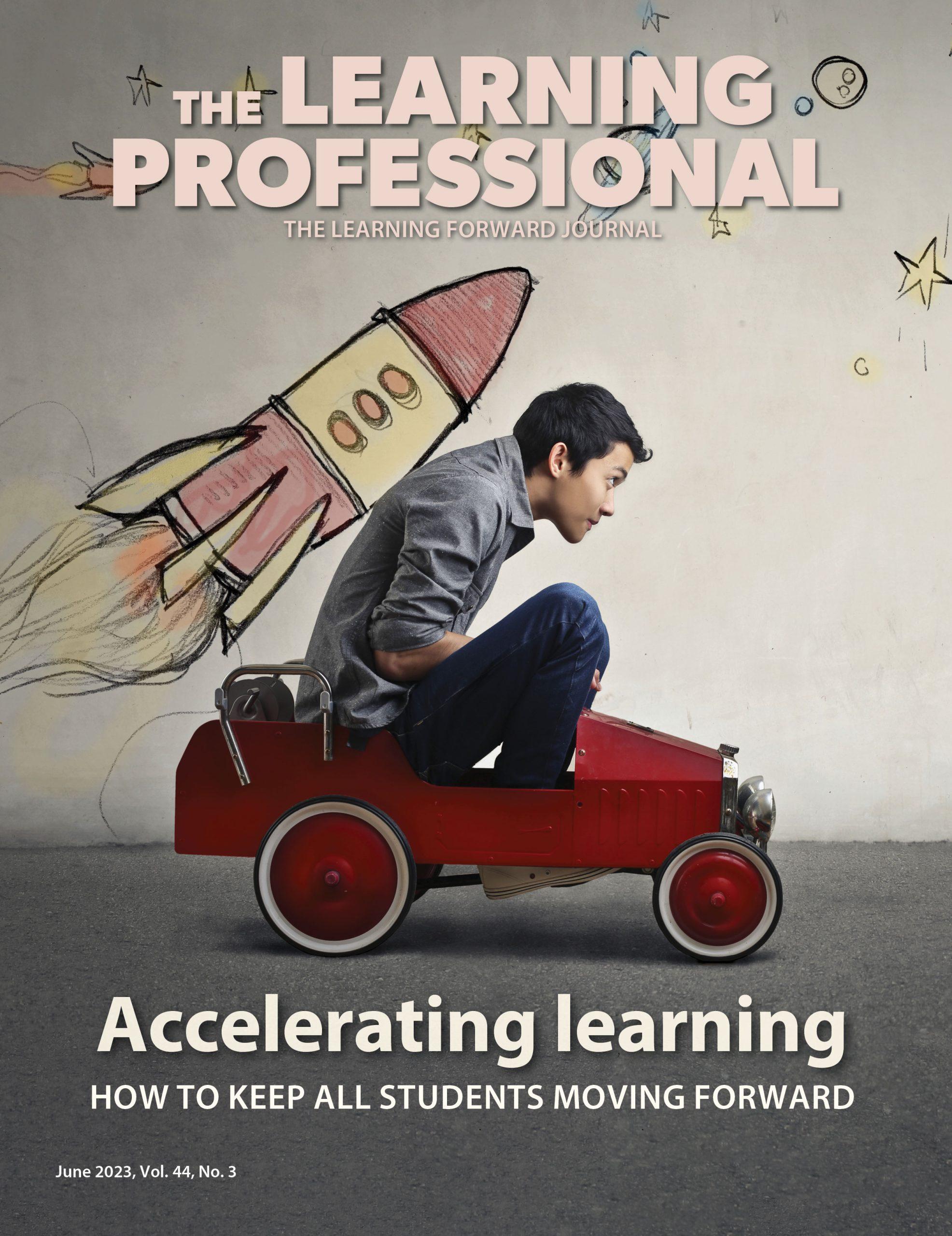What Research Tells Us
Common characteristics of professional learning that leads to student achievement.
By Learning Forward
February 2013
Read the remaining content with membership access. Join or log in below to continue.
Sed ut perspiciatis unde omnis iste natus error sit voluptatem accusantium doloremque laudantium, totam rem aperiam, eaque ipsa quae ab illo inventore veritatis et quasi architecto beatae vitae dicta sunt explicabo. Nemo enim ipsam voluptatem quia voluptas sit aspernatur aut odit aut fugit, sed quia consequuntur magni dolores eos qui ratione voluptatem sequi nesciunt. Neque porro quisquam est, qui dolorem ipsum quia dolor sit amet, consectetur, adipisci velit, sed quia non numquam eius modi tempora incidunt ut labore et dolore magnam aliquam quaerat voluptatem.
How teacher learning leads to student achievement

References
Banilower, E.R., Heck, D.J., & Weiss, I.R. (2007). Can professional development make the vision of the standards a reality? The impact of the National Science Foundation’s Local Systemic Change Through Teacher Enhancement Initiative. Journal of Research in Science Teaching, 44(3), 375-395.
Blank, R.K. & de las Alas, N. (2009). Effects of teacher professional development on gains in student achievement: How meta analysis provides scientific evidence useful to education leaders. Washington, DC: Council of Chief State School Officers.
Blank, R.K., de las Alas, N., & Smith, C. (2008). Does teacher professional development have effects on teaching and learning? Analysis of evaluation findings from programs for mathematics and science teachers in 14 states. Washington, DC: Council of Chief State School Officers. Available at www.ccsso.org/Documents/2008/Does_Teacher_Professional_Development_2008.pdf.
Clements, D.H. & Samara, J. (2011). Early childhood mathematics intervention. Science, 333(6045), 968-970.
Corcoran, T.B. (2007). Teaching matters: How state and local policymakers can improve the quality of teachers and teaching. (CPRE Policy Briefs RB-48). Philadelphia, PA: Consortium for Policy Research in Education, University of Pennsylvania.
Darling-Hammond, L., Wei, R.C., Andree, A., Richardson, N., & Orphanos, S. (2009). Professional learning in the learning profession: A status report on teacher development in the United States and abroad. Oxford, OH: NSDC.
Desimone, L.M., Porter, A.C., Garet, M.S., Yoon, K.S., & Birman, B.F. (2002). Effects of professional development on teachers’ instruction: Results from a three-year longitudinal study. Educational Evaluation and Policy Analysis, 24(2), 81-112.
Garet, M.S., Porter, A.C., Desimone, L., Birman, B.F., & Yoon, K.S. (2001). What makes professional development effective? Results from a national sample of teachers. American Educational Research Journal, 38(4), 915-945.
Guskey, T.R. (2003, June). What makes professional development effective? Phi Delta Kappan, 84(10), 748-750.
Harris, D.N. & Sass, T.R. (2007, March). Teacher training, teacher quality, and student achievement. (Working Paper 3). Washington, DC: National Center for Analysis of Longitudinal Data in Education Research.
Hiebert, J. (1999). Relationships between research and the NCTM Standards. Journal for Research in Mathematics Education, 30(1), 3-19.
Kennedy, M. (1998). Form and substance in inservice teacher education. (Research Monograph No. 13). Madison, WI: National Institute for Science Education.
Learning Forward. (2011). Standards for Professional Learning. Oxford, OH: Author.
Loucks-Horsley, S., Hewson, P., Love, N., & Stiles, K.E. (1998). Designing professional development for teachers of science and mathematics. Thousand Oaks, CA: Corwin Press.
National Commission on Teaching and America’s Future. (1996). What matters most: Teaching for America’s future. New York: Author.
Obama, B. (2009, March 10). Taking on education. Remarks made at the U.S. Hispanic Chamber of Commerce, Washington, DC. Available at www.whitehouse.gov/blog/09/03/10/Taking-on-Education.
Scher, L.S. & O’Reilly, F.E. (2007, March). Understanding professional development for K-12 teachers of math and science: A meta-analysis. Paper presented at the annual meeting of the American Educational Research Association, Chicago, IL.
Shavelson, R.J. & Towne, L. (2002). Scientific research in education. Washington, DC: National Academy Press.
Showers, B., Joyce, B., & Bennett, B. (1987). Synthesis of research on staff development: A framework for future study and state-of-the-art analysis. Education Leadership, 45(3), 77-87.
Yoon, K.S., Duncan, T., Lee, S.W.-Y., Scarloss, B., & Shapley, K. (2007). Reviewing the evidence on how teacher professional development affects student achievement. Washington, DC: Institute of Education Sciences, National Center for Education Statistics.
Learning Forward is the only professional association devoted exclusively to those who work in educator professional development. We help our members plan, implement, and measure high-quality professional learning so they can achieve success with their systems, schools, and students.
Recent Issues
TAKING THE NEXT STEP
December 2023
Professional learning can open up new roles and challenges and help...
REACHING ALL LEARNERS
October 2023
Both special education and general education teachers need support to help...
THE TIME DILEMMA
August 2023
Prioritizing professional learning time is an investment in educators and...
ACCELERATING LEARNING
June 2023
Acceleration aims to ensure all students overcome learning gaps to do...









